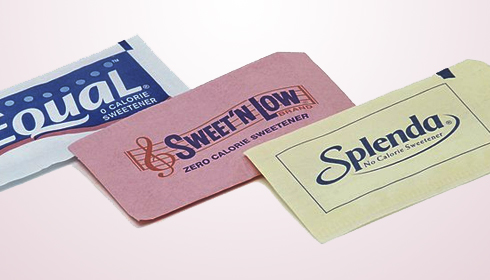
Replacing sugars with NSS does not help with weight control: WHO Nutrition Chief
Replacing free sugars with non-sugar sweeteners (NSS), including include acesulfame K, aspartame, advantame, cyclamates, neotame, saccharin, sucralose, stevia and stevia derivatives do not help with weight control in the long term, the WHO Director for Nutrition and Food Safety, Dr Francesco Branca said in Geneva recently on the occasion of the release of a new guideline on NSS.
The new guidelines are based on the recommendation of the findings of a systematic assessment of the current research by the UN Health Agency, indicating that usage of NSS had no long-term benefit in lowering body fat in adults or children.
The findings of the review also imply that long-term use of NSS may have unintended consequences, such as an increased risk of type 2 diabetes, cardiovascular disease, and mortality in adults.
"Replacing free sugars with NSS does not help with weight control in the long term,” Dr Branca said.
“People need to consider other ways to reduce free sugars intakes, such as consuming food with naturally occurring sugars, like fruit or unsweetened food and beverages,” the WHO Nutrition and Food Safety director added.
Pointing out that NSS are not essential dietary factors and have no nutritional value, Dr Branca further added, “People should reduce the sweetness of the diet altogether, starting early in life, to improve their health.”
Except for people with pre-existing diabetes, the recommendation applies to everyone and includes all synthetic and naturally occurring or modified non-nutritive sweeteners that are not classified as sugars and are used in manufactured foods and beverages or sold separately for consumers to add to foods and beverages.
The recommendation applies to all people except individuals with pre-existing diabetes and includes all synthetic and naturally occurring or modified non-nutritive sweeteners that are not classified as sugars found in manufactured foods and beverages or sold on their own to be added to foods and beverages by consumers.
However, the recommendation does not apply to personal care and hygiene products containing NSS, including toothpaste, skin cream, and medications, or to low-calorie sugars and sugar alcohols (polyols), which are sugars or sugar derivatives containing calories and are therefore not considered NSS, the UN Health agency said.
The WHO said that its guideline on NSS is part of a suite of existing and forthcoming guidelines on healthy diets that aim to establish lifelong healthy eating habits, improve dietary quality and decrease the risk of NCDs worldwide.
Though devoid of calories, the NSS pose several health risks. In a 2022 study published in PLOS Medicine, French researchers claimed that their large cohort study found that artificial sweeteners (especially aspartame and acesulfame-K), used in many food and beverage brands worldwide, were associated with increased cancer risk.
The study led by researchers from Sorbonne Paris Nord University found that people who consumed higher amounts of aspartame were slightly more likely to develop cancer overall (1.15 times the risk), breast cancer (1.22 times the risk), and obesity-related cancers (1.15 times the risk) than those who did not consume aspartame.